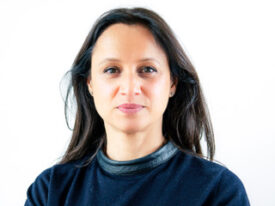Be more Dolly Parton about nine-to-five working

Opinion: Career Leaders
At a time when most big companies are still run by men, it is more critical than ever that we do whatever is necessary to hold on to talented women in media, warns The Village’s co-founder.
As a working mother and single parent, I am growing increasingly concerned by the slew of businesses returning to an office-bound nine-to-fiveschedule.
As Dolly Parton so eloquently penned, “Workin’ 9 to 5, What a way to make a livin’
It’s all takin’ and no givin”.
It worries me because the roll-back on hybrid and asynchronous working will likely impact women and parents the most, driving some to quit careers they have worked hard to build. Businesses from Tesla to Twitter are reverting to more rigid working hours, with companies such as Snapchat requiring 80% of its staff to return to the office.
Media and advertising agencies have largely remained a beacon of light and innovation, continuing to offer flexible, hybrid working. I hope this continues.
Returning to WFO as the norm is fraught with dangers
There are many important reasons why returning to a nine-to-five work-from-office culture is most likely to have a damaging impact on the careers of parents, in particular women. Data shows that more than three quarters of women in the work-place are parents and they are facing the daily challenge of juggling childcare responsibilities with building and sustaining a fulfilling career.
More than 20,000 nurseries have closed since 2015 and those that remain are not only prohibitively expensive but often have long waiting lists. School hours, doctors’ opening times, sports fixtures and inflexible working hours are frequently the antithesis to achieving a balanced and harmonious life. And this list is by no means definitive.
If employers fail to recognise the challenges women face, there’s a danger that many will simply abandon their careers, forced to accept that too many difficult choices as well as continued rising costs are not viable in terms of supporting a demanding, rigid working life.
Hybrid working has been a game changer for me. Post lock-down, I have continued to work happily, successfully and effectively within the hybrid hours we have introduced at The Village, the media agency I co-own with my business partner and fellow single father, Richard Cox.
We have worked hard to build a hybrid working culture that supports our clients and our team, achieving a balance between what works best for our customers — the driving force of The Village — and what works best for our people, who deliver that value.
While an office is without doubt the best environment for connecting, collaborating and learning, we have found that WFH days are also integral to motivating our staff. We also recognise that it is not always practical for people to come into the office for collaboration only and have designed our working space so that it provides zones that are conducive to ‘deep work’, such as writing client briefs or taking confidential calls and areas that are better suited to less concentrated tasks.
We are committed to offering flexible working hours, including a half-day on Friday. We have also introduced specific days when we ask our team to WFO. This enables us to engage as a team and to discuss any new initiatives and challenges we are facing as a client-facing business. We believe a less rigid working environment creates an energised team and our experience to date has supported this. Our clients are very happy with our work and we have secured some exciting new business wins – all within a hybrid working framework.
It’s about opportunities
So why are some businesses so set upon returning to the stiff working codes of yester-year? Some are suggesting compressed working, where employees work their contracted hours over fewer days. Will this inevitably lead to longer working days? And, how will working mothers and parents navigate this when most nurseries close at 6pm and schools even earlier?
As mother to a teenage daughter, I have enjoyed a much more rewarding and fulfilling relationship with her while working within a flexible, hybrid structure. I am more involved in her school work and life in general, while she in turn sees first-hand some of the challenges and joys I face as a working mother.
At a time when 96% of FTSE 350 companies are run by men, it is more critical than ever that we do whatever is necessary to hold on to talented women in the work-place. This will help positively affect the gender pay gap, create a more inclusive and equal working environment and enable more women to enjoy a career they have worked hard to achieve, while being a positive, caring and aspirational role model to their children.
I hope my hybrid working life will have a positive impact on my daughter’s future career choices; that she and other young women like her will choose a career that absorbs and inspires them. That they won’t be side-tracked by the outdated Disney Princess fable that women can’t have it all. That all women are given the opportunity by future employers to balance a rewarding career with raising a family.
In short, I’m with Dolly. As a hybrid worker, I can “tumble out of bed and stumble to the kitchen” and still make my business day matter; whether its WFH or WFO.
 Deidre MacNair is co-founder of independent media agency The Village Communications
Deidre MacNair is co-founder of independent media agency The Village Communications
Career Leaders: The Media Leader‘s weekly bulletin with thought leadership, news and analysis dedicated about media careers, training, development and wellbeing.
Sign up for free to ensure you stay up to date every Tuesday.





